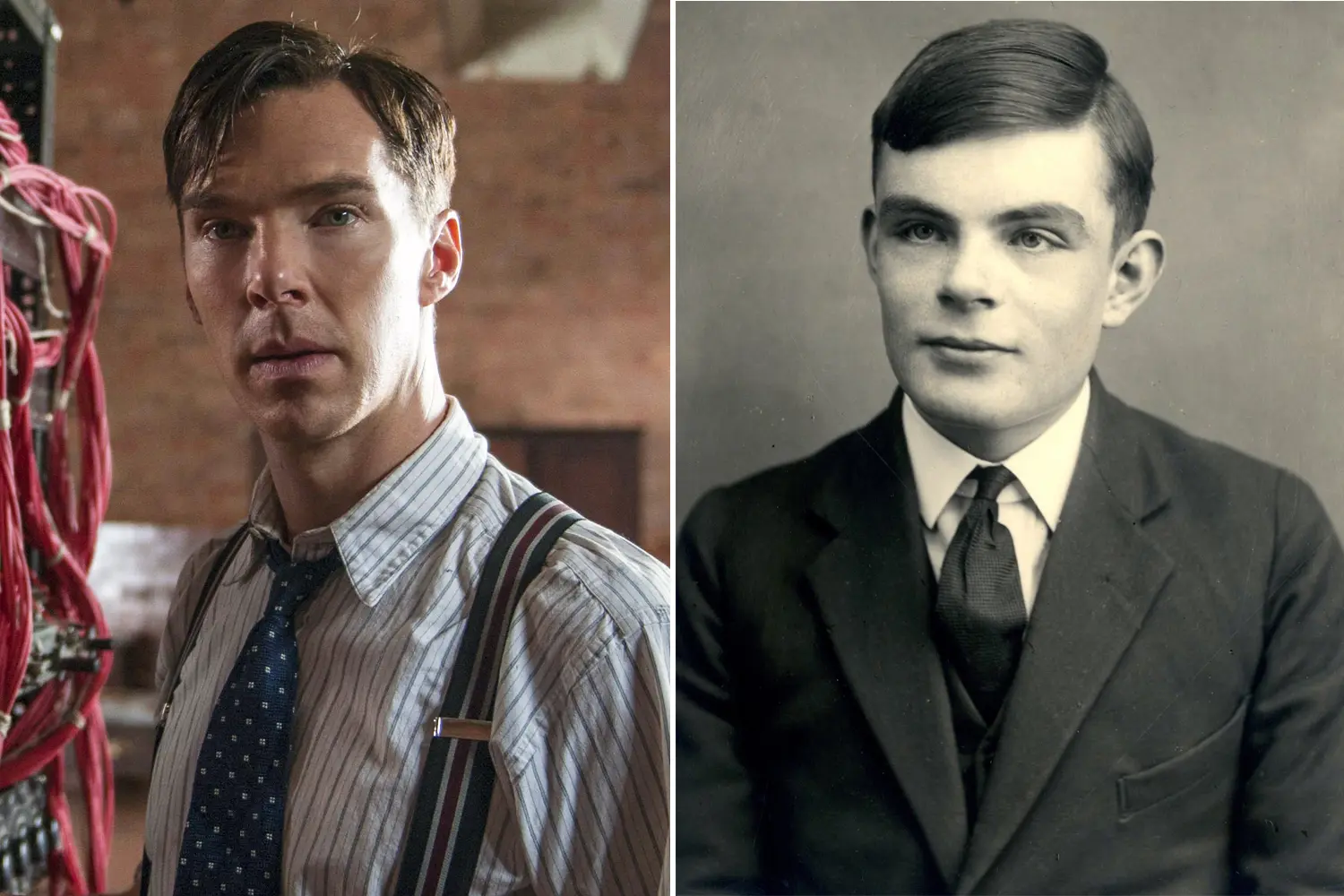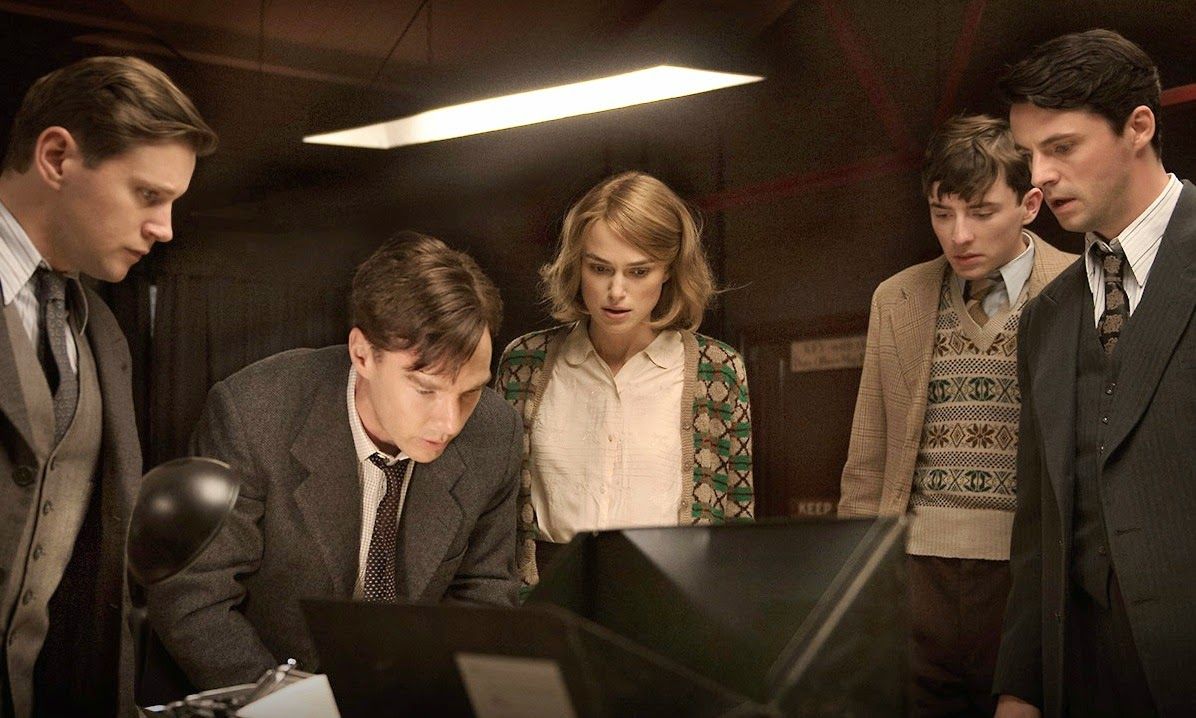The Imitation Game is a historical drama film that tells the story of Alan Turing, a mathematician who played a crucial role in cracking the Enigma code during World War II. The film portrays Turing’s personal struggles and professional accomplishments as he worked to break the code, ultimately leading to the Allies’ victory in the war. One of the key themes in the film is Turing’s personal growth, which is intricately connected to his professional success. In this article, we’ll explore how Turing’s personal journey influenced his work and his legacy.

Background and Context of The Imitation Game
The significance of codebreaking during World War II cannot be overstated. The Germans had developed a sophisticated encryption system called Enigma that they used to send messages between their military units. The code was so complex that it was thought to be unbreakable. However, breaking this code was crucial for the Allies, as it would allow them to intercept and understand German military plans, movements, and orders.
Alan Turing was one of the many brilliant minds working on codebreaking during this time. He was recruited by the British government’s codebreaking unit, known as the Government Code and Cypher School (GC&CS), to work on breaking the Enigma code. Turing believed that the key to breaking the code was to develop a machine that could perform calculations much faster than a human could.
Turing’s work on this machine, which he called the Bombe, was a major breakthrough in codebreaking technology. The machine was able to perform millions of calculations per second, greatly increasing the speed and efficiency of codebreaking. The Bombe was a significant contribution to the war effort, as it allowed the Allies to intercept and decipher German messages more quickly and accurately than ever before.
Turing’s work on the Bombe was not without its challenges, however. The machine required a massive amount of resources and funding to develop, and there were many setbacks and obstacles along the way. Despite these challenges, Turing persevered and continued to work on the machine, ultimately making a significant contribution to the Allied victory in the war.
In addition to his work on the Bombe, Turing also made other important contributions to codebreaking during World War II. He was part of a team that developed a technique called Banburismus, which was used to further refine the decoding process. Turing’s insights and ideas were instrumental in the development of modern cryptography and computer science, and his legacy continues to influence these fields today.

Personal Struggles
Despite his immense intellectual abilities, Alan Turing was a deeply complex individual who struggled with personal demons throughout his life. One of his most significant struggles was related to his sexuality. Turing was openly homosexual at a time when it was illegal in England, and this led to his eventual prosecution and conviction for homosexuality in 1952.
His sexuality was not the only challenge that Turing faced, however. He was also an unconventional thinker who often clashed with his colleagues at the GC&CS. Turing’s unorthodox approach to codebreaking, including his belief in the importance of machines in the process, was often at odds with the more traditional methods used by his colleagues. This led to tensions and disagreements that sometimes hindered his work.
In addition to these external struggles, Turing also battled internal demons such as depression and anxiety. He was socially isolated and had difficulty connecting with others on a personal level. These struggles made it difficult for him to perform at his best, and they likely contributed to his eventual decision to commit suicide in 1954.

Professional Accomplishments
Alan Turing was a pioneering computer scientist, mathematician, and cryptanalyst who made numerous contributions to the field of computer science. Aside from his work on the Bombe, Turing’s professional accomplishments include his development of the Turing machine, which is considered to be one of the foundational concepts of modern computer science. This theoretical device laid the groundwork for the development of modern computers.
Turing also made significant contributions to the field of artificial intelligence. In 1950, he proposed the Turing Test, which is still used today as a measure of a machine’s ability to exhibit human-like intelligence. He also developed the concept of machine learning, which is now widely used in the development of AI systems.
In addition to his work in computer science, Turing made important contributions to the field of biology. In 1952, he published a paper on the chemical basis of morphogenesis, which proposed a mathematical model for the growth of living organisms. This groundbreaking work has had a lasting impact on the field of developmental biology.
Finally, Turing made important contributions to the field of logic and mathematics. His work on the Entscheidungsproblem, which dealt with the question of whether there exists a general algorithm for solving all mathematical problems, led to the development of the concept of computability and the Church-Turing thesis. His contributions to logic and mathematics have had a profound impact on computer science and continue to shape the field to this day.

Legacy and Impact of The Imitation Game
Turing’s legacy has had a profound impact on the fields of computer science and artificial intelligence. His work on codebreaking helped to pave the way for modern cryptography and computer technology, and his ideas about the relationship between machines and human thought continue to be influential today.
However, Turing’s legacy also highlights the importance of personal growth and overcoming obstacles. His struggles with social isolation, depression, and anxiety were significant, but he was able to find ways to cope and to achieve great things despite these challenges. This is a valuable lesson for anyone facing personal struggles or obstacles in their lives.
The Imitation Game is a film that masterfully blends history, drama, and personal growth into a compelling story. It highlights the importance of perseverance, unconventional thinking, and the power of personal transformation. It is a reminder that no matter how challenging the circumstances may be, there is always a way to grow and achieve.
As we continue to explore the world of movies and TV shows, let us seek out stories that inspire us to become better versions of ourselves. Let us be inspired by the perseverance of characters like Alan Turing and use their stories to help us overcome our own struggles and obstacles. Let us unlock the genius within and find new and innovative ways to achieve our goals and make a difference in the world.

